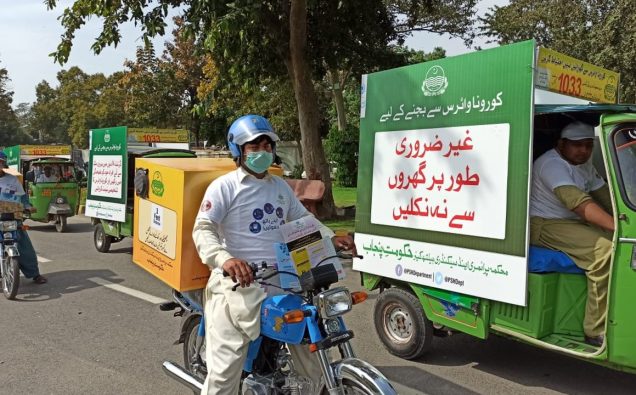
Pakistan has declared wearing masks at public places mandatory, as 78 record deaths from coronavirus pandemic on a single day on Saturday jolted the policymakers, who have face d a lot of criticism for delayed response to the crisis.
Besides government’s relaxation of preventive lock down during the Eid holidays, a variety of factors including social attitudes, lack of awareness, compulsions of daily wage earners and inadequate tests for a population of over 200 million people signal tough days ahead.
The World Health Organization had initially praised Pakistan’s efforts to contain the outbreak but now critics fear that COVID-19 cases could rise astronomically in the months ahead.
SAPM on National Health Services @zfrmrza addressed a news conference in Islamabad today, he said wearing masks at crowded places has been declared mandatory to prevent spread of #Coronavirus.#CoronainPakistan#FollowCovidSafeSOPs#Covid_19 pic.twitter.com/g1v14AGpml
— Govt of Pakistan (@pid_gov) May 30, 2020
“Surgical and cloth masks can be used while travelling in trains, public transport or going to mosques, bazaars, and shops,” Special Assistant to Prime Minister Imran Khan, Dr. Zafar Mirza, told a news conference in the capital, Islamabad.
Responding to rising demand of the face masks, Pakistan has attained capability to produce its own face masks and protective clothing and is in position to export these as well, officials say.
“We are very close to producing N95 masks locally as well, Minister for Science and Technology, Fawad Chaudhary recently said.
Meanwhile, a Chinese firm , Xuzhou Xunyike System Technology has donated two automatic, intelligent mask production lines to help Pakistan build its mask industry.
Each machine has a capacity to produce 100,000 masks per day, Xunyike General Manager Qin Ping said .
سماجی دوری سے کورونا وائرس کا پھیلاؤ روکا جا سکتا ہے مگر سماجی دوری کیسے اختیار کی جائے؟
اس ویڈیو کے ذریعے جانیئے۔ #گھر_رہیں_محفوظ_رہیں#StayHomeStaySafe@nhsrcofficial @UNICEFROSA pic.twitter.com/ERRTGUfBAj
— UNICEF Pakistan (@UNICEF_Pakistan) May 10, 2020
The production line donated to Pakistan, through Pakistan Embassy in Beijing, can ensure fully automatic production.
It can also ensure remote data collection, debugging and maintenance services by giving operating instructions in Suzhou.
“There is no (formal) mask industry in Pakistan, so we are donating the production lines to help Pakistan build the mask industry,” Qin Ping said.


















